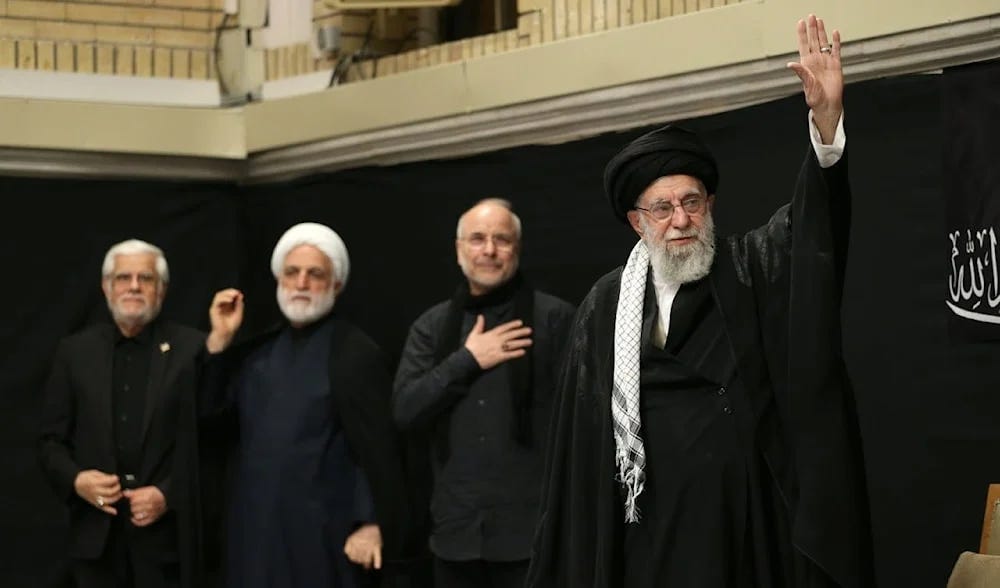Ayatollah Khamenei Makes Powerful First Public Appearance Since 12-Day War
Ayatollah Public Appearance also a strategic assertion of authority. It was a signal to friends and foes alike: he stands firm, and so does the nation behind him
Iran, PUREWILAYAH.COM - The Leader of the Islamic Revolution and the Islamic Republic of Iran, Ayatollah Sayyed Ali Khamenei, took part in the Ashura night mourning ceremony on Saturday evening at the Imam Khomeini Hussainiya in Tehran.
This marked his first public appearance since the end of the 12-day war between Iran and the Israeli regime, and it came amid intense global scrutiny following credible threats to his life by Zionist and American officials.
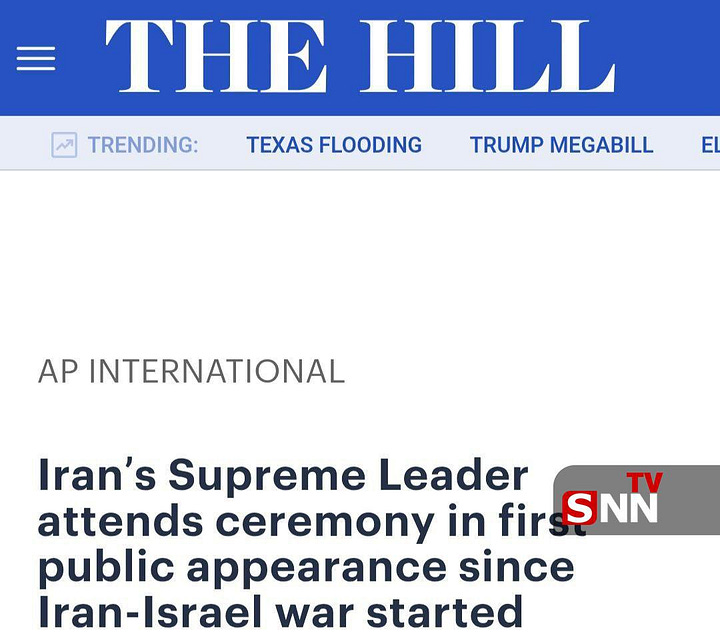
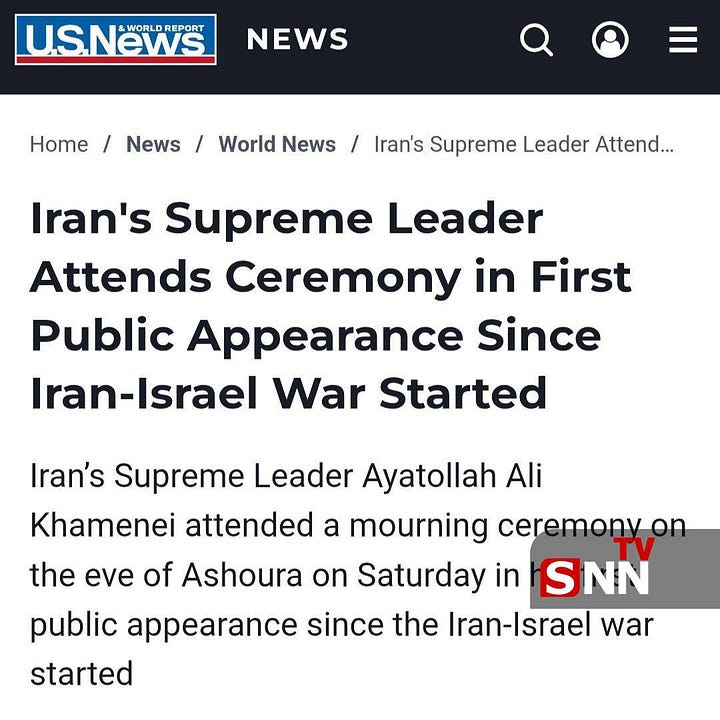
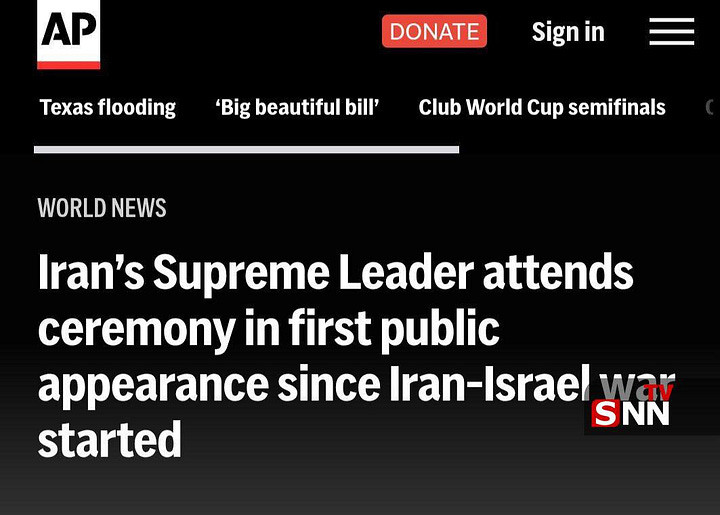
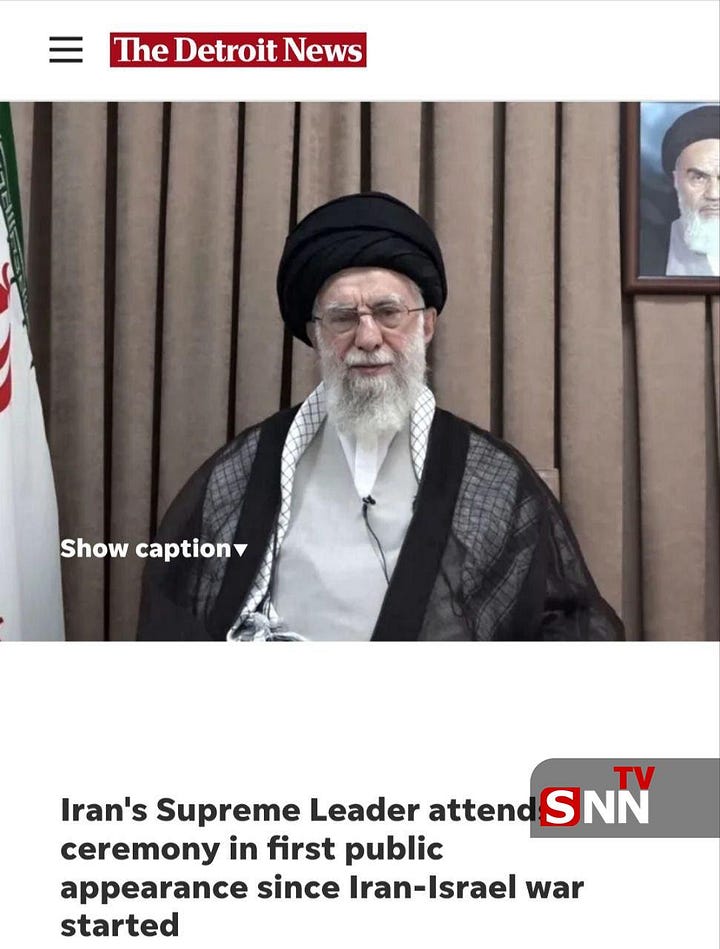
Global Media Spotlight
The Supreme Leader’s reappearance during one of the most solemn and spiritually significant nights of the Islamic calendar received wide coverage by international media outlets, including Al Jazeera, which paused its regular programming to cover the event live.
According to Mehdi Fazeli, member of the Office for the Preservation and Publication of the Works of the Leader, the emotional response to Ayatollah Khamenei’s presence was immediate and intense:
“The Leader arrived; the Imam Khomeini Hussainiyah erupted! The shockwaves of this eruption will reverberate through Tel Aviv and the White House.”
Observers noted that this year’s Ashura night ceremony has become a defining moment, with the Imam Khomeini Hussainiyah filled with spiritual fervor and devotion, amplified by the presence of the Supreme Leader amidst heightened threats.
Assassination Plot
During the 12-day war and in its aftermath, Ayatollah Khamenei was the direct target of provocative threats. Former US President Donald Trump claimed publicly that he had “saved [Khamenei’s] life”, asserting that he had blocked both Israel and the US military from assassinating him. Israeli occupation Prime Minister Benjamin Netanyahu and Security Minister Israel Katz issued several public threats targeting the Iranian leader.
After the war ended, Katz revealed that Israel had actively planned to assassinate Khamenei, but claimed no viable operational opportunity was found to carry out the plot.
These statements sparked international condemnation. Leaders, officials, political parties, and religious authorities from across the world denounced the threats, viewing them as violations of international norms.
Iran’s Call for Accountability at the UN
In response, Iran officially called on the United Nations to condemn the threats. In a formal letter submitted by Iran’s Permanent Representative to the UN, Amir Saeid Iravani, Tehran described the statements as clear violations of international law and incitement to state terrorism.
Iravani specifically cited Article 2(4) of the UN Charter, which prohibits threats or use of force against the sovereignty or political independence of any State. He emphasized that such rhetoric also violates the principle of the inviolability of Heads of State.
“Such reckless and deliberate threats by senior officials constitute a serious violation of the Charter of the United Nations,” Iravani wrote, adding that Trump’s own remarks on Truth Social, where he stated he “knew exactly” where Khamenei was and refrained from having him killed, amounted to “incitement to political assassination.”
Voices from Iran: A Symbol of Resistance
Religious and political figures in Iran hailed Ayatollah Khamenei’s participation in the Ashura ceremony as a direct counter to psychological warfare and a reaffirmation of resilience.
Hujjat al-Islam Mesbahi Moghaddam, a prominent cleric, stated:
“The presence of the Leader of the Revolution at the Imam Khomeini Hussainiyah neutralized the enemy’s psychological operations.”
Ayatollah Khamenei’s return to the public stage at a moment of both spiritual significance and geopolitical tension served not only as an act of religious devotion but also a strategic assertion of authority. It was a signal to friends and foes alike: he stands firm, and so does the nation behind him. (PW)


